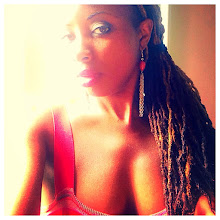Throughout my high school years, I found myself mesmerized by the racy lyrics of women hip hop artists such as Lil' Kim, Foxy Brown, and even (dare I say) Trina. Their unabashed and often profane performances of female hypersexuality, crass materialism, and criminality (the ride or die bitch) intrigued me. I knew every sexually explicit lyric from each of their debut projects. Needless to say, questions about their authorship of these lyrics and their "Bad ASS" images arose and remain somewhat unanswered. We know that male hip hop heavyweights such as the late Notorious B.I.G. and self-proclaimed (and oft critically acclaimed) best rapper alive, Jay-Z heavily influenced the careers and personas of the women hip hop artists who brought a new version of hip hop femininity to mainstream hip hop. The words of these women, raunchy and un-ladylike, ushered in a new moment in hip hop history in which women embraced a pleasure politics that rejected being a lady. Though the sexual exploits, six-figure shopping sprees, and illegal drug economy were a far cry from my experiences attending an elite private school in upper-Northwest Washington, D.C., their lyrics were a part of my "coming of age."
I was always a fan of hip hop and always gave particular attention to the women in the industry. When I was 7, I named my first parakeet, Spinderella. I mimicked Salt-N-Pepa, but always thought that the deejay was the most unique and underrated member of a group. Little did I know then, in the earliest days of hip hop, the deejay was the superstar. As I was becoming a loyal fan of hip hop, the transition from the focus on the deejay to focusing on the emcee occurred.
I spent hours listening to MC Lyte, Roxanne Shante, Queen Latifah, Moni Love, Yo-Yo, Rage and any other woman emcee who dared to challenge and permeate the male-dominated culture. Though still marginalized within mainstream hip hop, throughout the late 1980s and the 1990s, I heard an array of women's voices attempting to articulate possibilities for a defiant black womanhood that could inspire and influence a generation combating crack, post-industrialization, HIV/AIDS, Reaganomics, the feminization of poverty, the decline of the social welfare state and the rise of the corporate welfare state, and various other social, economic, and political conditions unique to this era.
The height of this moment of what I will term "hip hop musical feminism" came with release of Lauryn Hill's first solo album, The Mis-Education of Lauryn Hill. To this very day, I can recite every rhyme, chorus, and interlude from this dynamic album. In one album, she recreated the standard for what a hip hop album should be: evocative, emotional, vulnerable, self-critical, gritty, sentimental, sonically innovative, lyrically imaginative, creative, and most importantly, a sincere reflection of the life and times we experience. I knew Lauryn Hill would be a definitive figure within hip hop after listening to The Score (The Fugees). It was either when she rhymed "And even after all my logic and my theory/I add a muthafucker/So you ignant niggas hear me" or " So while you imitatin' Al Capone/I be Nina Simone/And defecation on your microphone" that I knew Ms. Hill would be synonymous with hip hop for me.
So how do I reconcile enjoying the depth and weight of Lauryn Hill and the raunchy and sexually explicitness of Lil' Kim? I don't! I appreciated this era/epoch in hip hop because of the extant variety. Foxy Brown's lyrics incited a boldness, while Queen Latifah and Moni Love made me think about what I called myself and what I allowed others to call me as well as how to think about the world from a socially responsible standpoint. Salt-N-Pepa encouraged me to think about sex and sexuality. MC Lyte provided a template for confidence that so many black and brown girls lack. The list goes on and on, but each of these emcees influenced my understanding of the possibilities for black women in my generation as well as how I could address the pressing issues confronting my generation.
So why this brief recollection of my love of women emcees in hip hop? I can't find the love now. It's not on most of the albums I hear. It's formulaic these days, no variety and limited lyrical or creative prowess. Exceptions such as Jean Grae exist, but I remember hearing at least 3 or 4 different female voices on a regular basis in an earlier moment in hip hop history. I'm not lamenting the loss so much because I know that black and brown music must evolve and shift and reinvent Soul every few decades. But I just can't stand seeing less-than-mediocre emcees, like most of those who vyed for the Ms. Rap Supreme title on VH-1's reality contest show, attempting to claim a stake within a modern tradition that helped me locate my feminist self. Call me a hip hop elitist or a nostalgic hater, but I just want my last memories of hip hop to include women's voices that speak to black girls the way Hill, Latifah, Lyte, and even Trina, to an extent, spoke to me.
Perhaps it will not be through hip-hop, but through whatever youth, musical culture that evolves. Wherever it emerges, women artists, we need you, WE NEED YOU more than ever.
